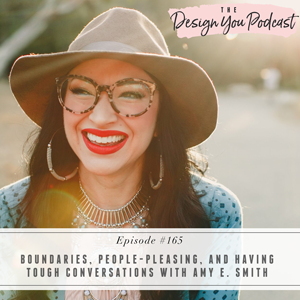
Whether we like to admit it or not, everyone is guilty of what we’re talking about in today’s episode. People-pleasing, worrying about what others think, comparing ourselves to others, and procrastination: guilty as charged. But today’s guest joins me to help us move through resistance towards a more authentic, honest version of ourselves.
Amy E. Smith is a certified and credentialed life coach and hypnotherapist, masterful speaker, and personal empowerment expert. She is the founder of TheJoyJunkie.com and uses her roles as coach, writer, podcaster, and speaker to empower women to move to a place of radical personal empowerment and self-worth. She joins me this week to talk all things boundaries and people-pleasing, and to show you how to have difficult conversations in your business and life.
Tune in this week for some great insight, solutions, and practices you can put in place to increase your self-worth and know your own value. Discover the reason you may be procrastinating, why you need to stop comparing yourself to other people, and how to start prioritizing your own needs to achieve your goals. Grab your notepad friends, there’s so much to take in in this episode!
If you want help creating a business with thriving revenue streams so that you can design the life you really want this year, now is your chance! We’re going to be opening the doors to the Design You Coaching Program really soon, get on our waitlist now!












